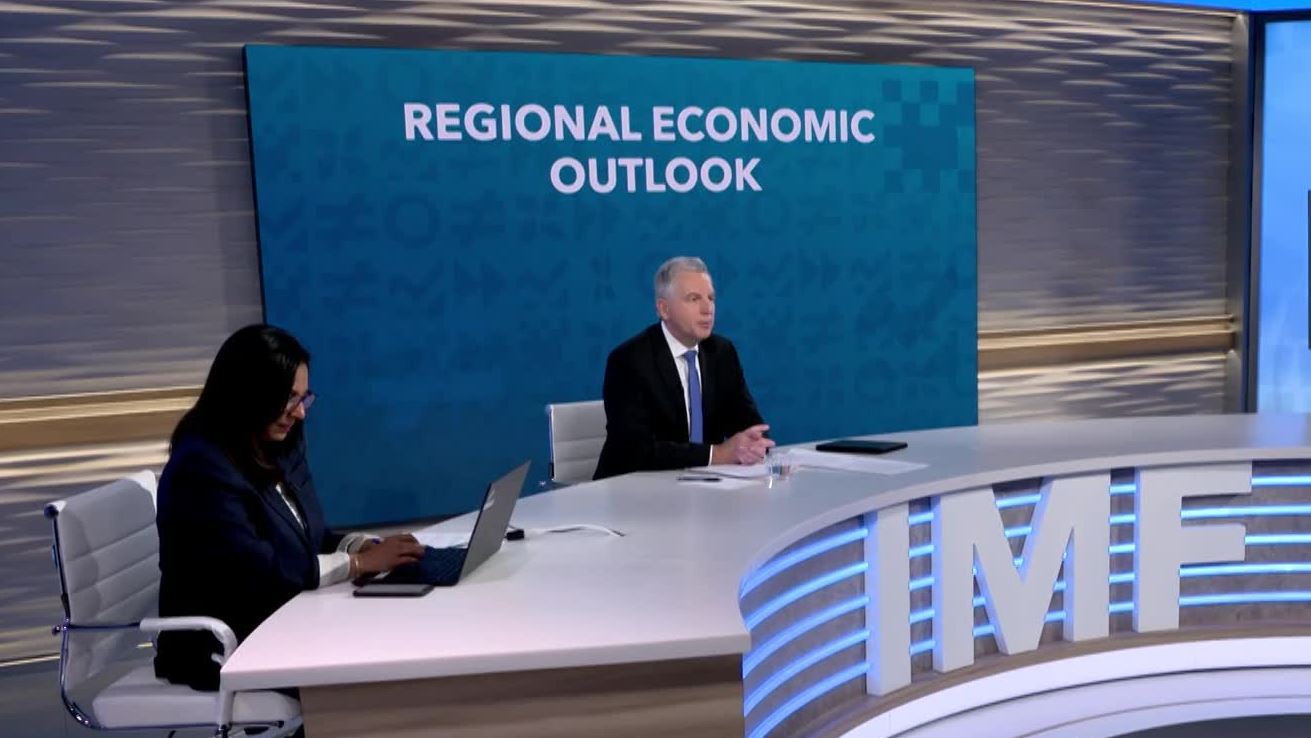The impact of the Russian invasion of Ukraine is having a severe negative impact on the economic prospects for Europe, the IMF said Friday in Washington, DC (April 22).
“Our Regional Economic Outlook lowers the growth forecast for Europe. For advanced economies, we cut our growth projection by 1 percentage points to 3 percent in 2022 from those in the January World Economic Outlook update. For emerging economies, and we are including here Belarus, Russia, Turkey and Ukraine, we have cut projected growth by 1.5 percentage points to 3.2 percent. Several major economies, such as France, Germany, Italy and the United Kingdom are projected to barely expand or even contract for two straight quarters this year. Activity in Russia is forecast to shrink by 8.5 percent. And in Ukraine by 35 percent,” listed off IMF Director of European Department Alfred Kammer at a news conference.
Ukraine’s neighbors face a humanitarian crisis in need of immediate funding, while the total cost of rebuilding Ukraine has yet to be determined but will be very expensive said Kammer.
“Budgetary pressures will be more acute in several countries that are opening their borders to refugees, for example, in Poland, which is hosting almost 3 million or Moldova, where the number of refugees is very high relative to the population. This underlines the need to share the costs of humanitarian relief fairly among EU members. For nonmember hosts, assistance by multilateral and regional partners should help manage costs, particularly where public finances are already stretched. The war and its aftermath will add to the structural challenges facing post-pandemic Europe. In Ukraine, social and economic infrastructure destroyed by the war will need to be rebuilt, which will require large financial flows from donors. Reconstruction and resettlement will help refugees return and economic growth to rebound. “
Europe faces the need to transition away from reliance on Russian gas imports, said Kammer. This is the time for those resources to be aimed toward funding cleaner and greener forms of energy in Europe.
“The war and its aftermath will add to the structural challenges facing post-pandemic Europe. In Ukraine, social and economic infrastructure destroyed by the war will need to be rebuilt, which will require large financial flows from donors. Reconstruction and resettlement will help refugees return and economic growth to rebound. And improving energy security calls for policies to strengthen resilience and accelerate the transition to greener forms of energy. Promoting new growth engines and factor reallocation requires active and passive labor market and education policies to improve labor conditions, lower transition costs and enhance workforce skills.”
A copy of the full report can be found here: https://blogs.imf.org/2022/04/22/war-in-ukraine-is-serious-setback-to-europes-economic-recovery/

